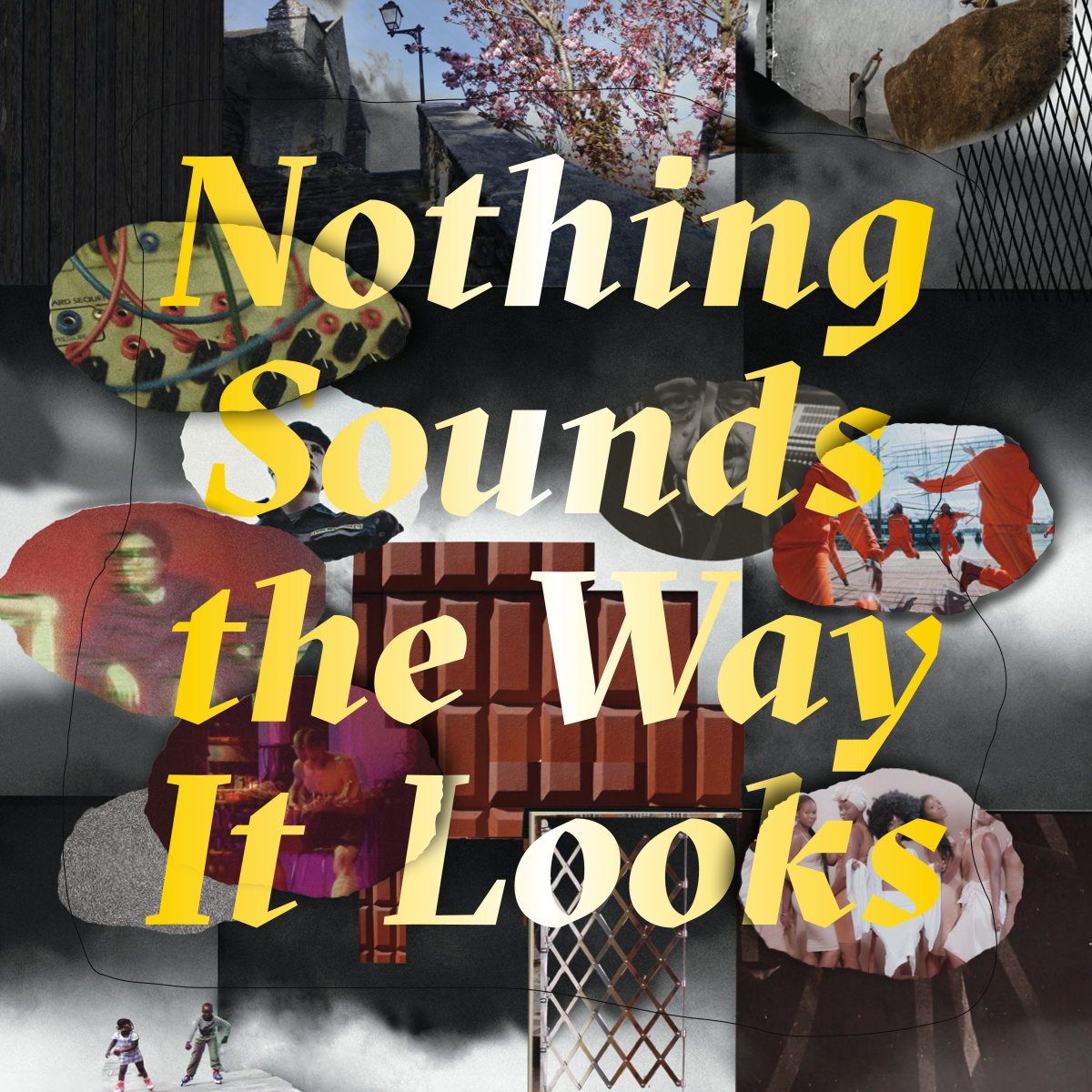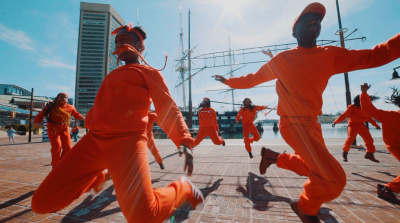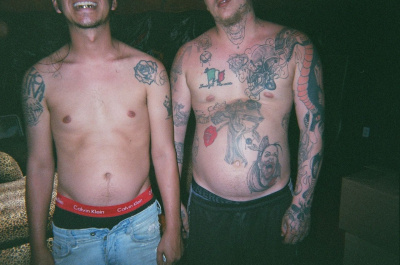5 Video Clips from Argentina: Female Empowerment
The pandemic-driven lockdowns have worsened the conditions for those who share a household with abusers. Since March 2020, there have been 368 femicides in Argentina and a lot of transfemicides that are not as accurately recorded, making the situation even worse. What’s most disturbing, though, is that in a lot of cases the murderers had already been reported to the police by the victim, several times.
What does this say about the ability of institutions and politicians to listen? It would seem as if our system was deaf, but I don’t consider that to be true; we cannot underestimate the meaning of silence coming from the people who should give an answer and protect us. So, as we say here, «my friends take care of me, not the police». That’s why I wrote about the lyrics and sometimes the video's visuals & context, but not about what's explored sonically. I wonder if there are aspects that peak YOUR ear, that draw your attention. Thanks for listening.
Music: Las tesis
Track: «Un violador en tu camino» («A Rapist in Your Path») (Chile, 2019)
Las tesis is a collective of four women from Valparaíso, Chile. Their goal as activists is to put feminist agendas and theories into action, to use them as forms of protest in the streets. This chant, or shall I say anthem, as it has become, is a powerful work that has been performed all over the globe, going viral and showing the potency of taking action in public space. It’s taken from the theories of Argentinian anthropologist Rita Segato, which tackle the structural violence of patriarchal capitalism. It was first conducted in Chile in 2019, amidst a wave of protests against the right wing government. The lyrics go:
Patriarchy is our judge
That imprisons us at birth
And our punishment
Is the violence you DON’T see
Patriarchy is our judge
That imprisons us at birth
And our punishment
Is the violence you CAN see
It’s femicide.
Impunity for my killer.
It’s our disappearance.
It’s rape!
And it’s not my fault, not where I was, not how I dressed.
Music: Benjamín Felice
Track: «Exhumo Pun» (Argentina, 2020)
Benjamín Felice is an artist from Tucumán, Argentina. In this piece he explores the ideas of denial, speculation, and fallacies in art and death using an HD walkthrough. This piece is made up of uncertain fragments of a speech that seek to address our most primordial ghosts and to falsify the veracity of objects and images. These ghosts, in my opinion, are connected by simple yet omnipresent experiences: fear of death, of the dark, of loneliness, of the violence we all come from and keep inside as a bloody witness of life and death. (Aren’t musical instruments, in their origins, sacrifices made in order to create order out of chaos? Stretched skin, bones and guts...) This walkthrough shows the power of simulation to make us experience and engage in subjects such as death, sickness, solitude, and uncertainty (the first sign we see in the walkthrough is a graphic joke: grim reaper knocking on a man’s door, saying: «Don’t worry, it’s just a sore throat»).
«Who do you really trust?», reads the first sentence with a lilac background. Can I trust the police? Can I trust my husband, my boyfriend, the judges? No, we can’t, and this I say fully convinced as a shout of anger and nonconformity, because we live with a constant death threat. The video states: «I wonder, who am I to be dead?» Let the dead travel fast and come back as a collective of angry ghosts who’ve fallen victim to these abusers and politically-endorsed murderers.
Music: AGF
Track: «Insisting to remember» (Finland, 2020)
Watch «Insisting to remember» on the website of the collective ⇋ REC-on ↭.
AGF is a feminist-activist-poet-soundartist-teacher-and-friend. Having met her was life-changing for me. We are currently working on a project together, about femicide and social injustice, 13,673 km away from each other. This piece is a tribute to the many murdered women and LGBTQ+ activists from the past years (check her investigation), people who were a potent part of working collectively to speak out and change things together: «This is my lament against the culture of silence», AGF says. Here in Argentina a femicide happens every 29 hours.
Veronica Gago, an Argentinian activist, writer, and political scientiest states in her book The feminist potency, or the desire to change everything: «(...) Listening generates proximity, where the rhythm of thinking also gives a beat to breathing and the gestures of being together». When I first read this phrase from Gago, I immediately remembered something AGF wrote for her album Commissioned Work: «Thanks for listening; listening is a political activity and is the groundwork for justice».
This amazingly simple statement blew my mind: listening is the key to start learning again how to live together. This takes me back to recent events in my country where violence was exerted upon the act listening: from 1976 to 1983, Argentina experienced the worst and most violent military coup in its history, which translated to state terrorism and the systematic «desaparicion de personas».
Imagine it’s 1977 in Argentina and the military have been in power for a year now. Clandestine torture centers are everywhere, and some are purposely not so hidden: there are doors and walls, but neighbors can hear the sounds of horror filling the silence that people have been forced to mantain in order to try to stay out of the regime’s radar. What is this if not a way of sowing fear that leaves no option but to be the recipient of what is imposed through violence? There is NO choice but to listen; a system based on acousmatic repression.
Returning to the present, we can be grateful to each and everyone who has worked so unsparingly to regain the ability to listen; choosing what to listen to and when. This gave us back the chance to listen to the unheard and silenced stories.
Music: Susy Shock y Lola Bhajan
Track: «en San Marcos Sierra» (Argentina, 2018)
Susy Shock calls herself «artista trans sudaca»; she’s a poet, writer, singer, teacher, actress, and more. Lola Bahan introduces herself: «I am an actress, writer, singer, photographer, model, what else.» Both explore the voice as an expression and intersection of subjectivity and collective activism.
These two Argentinian artists join voices to sing a folkloric chant from the Northwest of the country called «Canto con caja» («box singing»). This kind of music actually cuts across borders, since it’s a tradition from all the Andean region, which includes Bolivia, the Andes of Peru, the mountains of Ecuador, Northwestern Argentina, Northern Chile, the Andean region of Colombia, and the Andes of Venezuela. Its characteristic feature is the sound of the drum, which represents the earth, and the voice, which connects to the sky. Its melodies are not well-tempered as other Western music is, and it always carries a kind of spontaneous messiness. It’s a pre-Columbian practice that takes place mostly among women, and it’s part of a collective ritual gathering, a magical moment, a collective foundation of an order that emerges out of the ever-flowing chaotic existence of the universe.
In this video, Lola and Susy’s lyrics talk about the right to feel and share pleasure and to get rid of old religious and cultural impositions regarding love. It was filmed during the vigil of 2018, when the abortion bill was being debated in the Senate. Unfortunately, the law wasn’t sanctioned. But last year, thanks to the tireless work and protests that took place among the intersectional feminist movements, the law was finally passed and we have now expanded our rights to include the voluntary termination of pregnancy.
Music: Violeta Parra (performed by Mercedes Sosa)
Track: «Qué he sacado con quererte» (Argentina, 1993)
This video is older than the rest. Violeta Parra needs no introduction. She embodies the voice of class, feminist, and military coup resistance. She was an artist born in Chile in 1917, and her work ranges from archivism, poetry, composition, instrumental, and plastic arts.
Mercedes Sosa, who performs this beautiful song in the video, was also a key figure in our history and one of the most important figures of Argentine folklore music. She defined herself as a «cantora» rather than «cantante», although both translate as «singer» in English. That meant she was interested in not only the beauty but also with the political duty of having the potential to be heard.
She was persecuted and arrested during the military coup in Argentina, her records were forbidden, and she had to go into exile. Her music was considered subversive, a term which the military dictatorship used to name anyone who didn’t support the regime or spoke against it. Mercedes was a popular voice of resistance through her songs and she was part of the Communist Party, which was more than enough to pose a threat in the eyes of the violent, murderous authoritarian regime.
Her version of this lament inspired by Mapuchean tradition (a native culture and people from Argentina and Chile), is a beautiful intersection of Violeta Parra’s and her own sensitivity.
Biography
Links
Published on July 22, 2021
Last updated on April 02, 2024
Topics
Why is a female Black Brazilian MC from a favela frightening the middle class? Is the reggaeton dance «perreo» misogynist or a symbol of female empowerment?
A generative practice that promotes different knowledge. One that listens is never at a distance but always in the middle of the sound heard.
About Tunisian rappers risking their life to criticize politics and musicians affirming 21st century misery in order to push it into its dissolution.
From linguistic violence in grime, physical violence against artists at the Turkish Gezi protests, and violence propagation in South African gangster rap.
Queer is a verb, not a noun. Thinking & acting queerly is to think across boundaries, beyond what is deemed to be normal.





